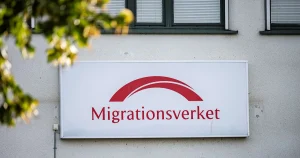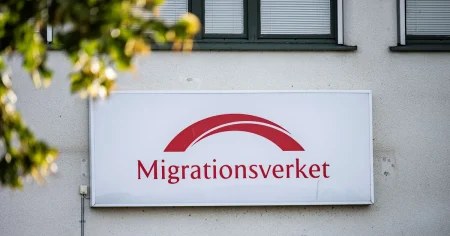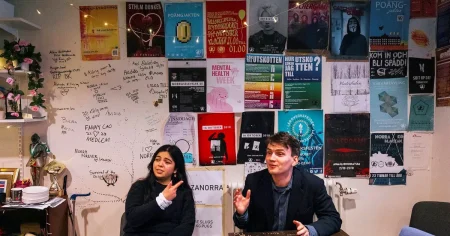The Swedish Security Service (Säpo), headed by Charlotte von Essen, has highlighted the evolving nature of the terror threat facing Sweden. Foreign intelligence services are increasingly utilizing organized crime networks to conduct operations within Swedish borders, targeting not only other states but also individuals and specific groups. This collaboration raises significant concerns as it represents a shift in the terror landscape, where state-sponsored actors operate through proxies, potentially carrying out acts of terror. While von Essen refrained from providing specific examples, she emphasized that any activity by a foreign power intended to instill widespread fear could constitute a terrorist act. This development underscores the complex and multifaceted nature of the current threat, blurring the lines between traditional terrorism and state-sponsored aggression.
The assessment of the terror threat level in Sweden remains at a four, signifying a high threat. This determination is based on intelligence gathered by Säpo’s counter-terrorism unit and an analysis conducted by the National Center for Terror Threat Assessment. While the assessment period is typically six months, von Essen indicated that the elevated threat level is likely to persist for a longer duration, potentially extending over the next decade, reflecting a long-term strategic outlook on the evolving security landscape. A reduction in the threat level would necessitate a significant decrease in the current uncertainties and contributing factors. This long-term perspective highlights the enduring nature of the current security challenges and the need for sustained vigilance and preparedness.
Adding to the complexity of the security landscape, Justice Minister Gunnar Strömmer identified three primary threats to Sweden’s internal security: terrorism, state-sponsored actors, and organized crime. These interconnected threats pose a significant challenge, requiring a comprehensive and integrated approach to security. The government has undertaken several measures to address the elevated terror threat and foreign interference, including the implementation of new strategies to counter violent extremism, terrorism, and organized crime. These strategies aim to enhance Sweden’s resilience and ability to respond effectively to these evolving threats.
The convergence of organized crime and foreign influence poses a further risk, potentially leading to the infiltration of state institutions. This infiltration underscores the insidious nature of these threats and the potential for undermining national security from within. Moreover, the persistent threats posed by Russian intelligence operations and espionage remain a significant concern. These activities represent a continuous challenge to Sweden’s sovereignty and security, requiring constant vigilance and counterintelligence efforts.
The increasing prevalence of hybrid threats, encompassing acts such as the cable disruptions in the Baltic Sea, cyberattacks, sabotage, and espionage, adds another layer of complexity to the security environment. These activities, which fall below the threshold of traditional military attacks, pose a significant challenge to societal stability and critical infrastructure. One strategy for countering these threats is attribution, publicly identifying the responsible actors. However, Justice Minister Strömmer emphasized the importance of exercising caution in this regard, stressing the need for irrefutable evidence before making such attributions. He cited the examples of Iran’s recruitment of gang criminals for attacks and the dissemination of thousands of text messages inciting violence against those who burned the Quran as instances where sufficient evidence warranted public attribution.
Säpo plays a crucial role in identifying patterns within the hybrid threat landscape, preventing and investigating related crimes. While von Essen refrained from commenting on specific operational details, she emphasized the agency’s active involvement in addressing these evolving threats. The ongoing NATO operation, Baltic Sentry, launched to monitor critical underwater infrastructure in the Baltic Sea, further highlights the importance of international cooperation in addressing these shared security challenges. The concerted efforts of national security agencies and international collaborations are crucial to maintaining security and stability in the face of these complex and evolving threats.














